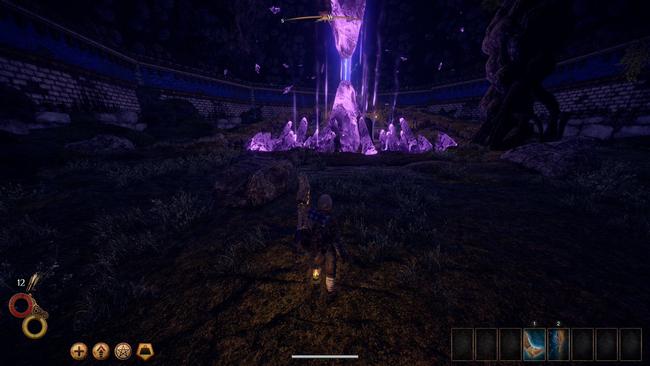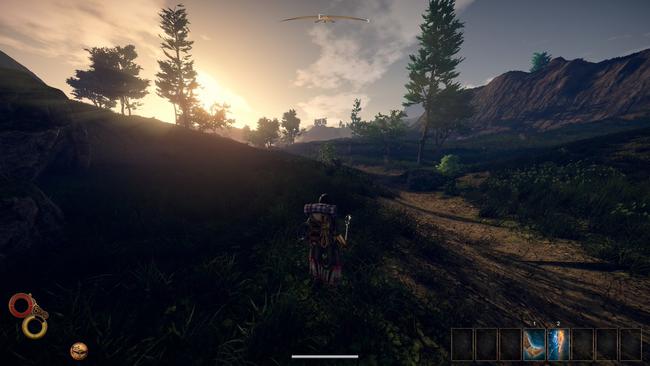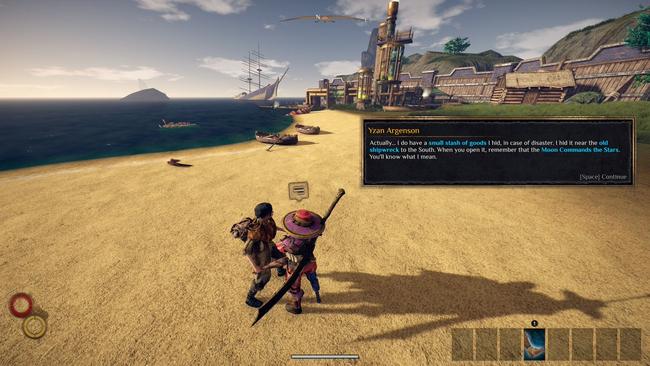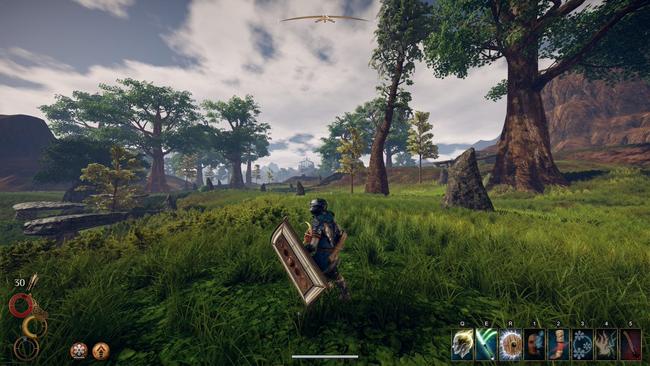
30 hours with Outward, the survival-focused RPG that demands your flexibility
I'm about 30 hours deep into Outward, the survival-focused RPG from Canadian studio Nine Dots. This specific game kinda snuck up on me; I wasn't really paying attention to it back in 2015 when it was announced as Outward - The Adventurer Life Simulator back when Steam Greenlight was a thing. I'm not one for simulation style games, but I do love RPGs (obviously), so when I learned over time that Outward was going to be a 'hardcore' open-world RPG with a heavy emphasis on Survival elements, my interest was piqued.
When I learned it could be played entirely in co-op multiplayer, I was pretty much sold.
From the outset, Outward plays a bit differently than most of the bigger RPGs of recent years. There are no experience points to earn and no levels to gain. There's no mini-map and no fast travel. Even the provided questlines are essentially given as just a sort of ancillary component rather than a primary thrust of the game. Instead, the player is encouraged to be driven by wanderlust and a genuine sense of adventure.

As an example, one of the first objectives in the game is to essentially come up with a sort of rent payment for your current house in your coastal hometown of Cierzo. Outside of telling the player how much you owe and when it's due by, the game doesn't otherwise tell you how to accomplish this. At least not directly.
You might find a collector willing to give you some money for returning a rare item to her, or you might just gather equipment and materials from the nearby wildlife to sell to the merchants. Or maybe an NPC will tell you about a stash of supplies he's hidden away -- it's up to you to find it though, nothing's going to be marked on your map.
You can instead learn from a friend that a Tribal Favor item could be acquired to settle the debt -- and then figure out how to acquire one (one of the NPCs will mention a missing man shipwrecked on a nearby beach, hmm).
Or lastly, you might just pack up and move out if you can't or don't want to pay. There's nothing stopping you.

I've heard other word-of-mouth stating that Outward is 'merciless', 'brutal', or 'unforgiving'. I personally think this is actually kind of a bit of a mischaracterization. There's nothing really overtly punishing about Outward's gameplay or combat, but instead what is unique is the sort of flexibility that Outward often requires is simply not set up like other games. While some open-world RPGs might scale the environments and enemies to the player's level, or arrange it such that certain locations are "higher level" than others and intended for late-game characters, Outward instead focuses on challenging the player in different ways.
For instance, the regions of the game are laid out in a fashion where many of the areas can be traveled to and from in several different manners. What this means is that while no one zone (so far, anyway) is strictly more difficult than the others, the way a player must prepare for each is different. Outside of Cierzo, temperatures can drop to below freezing in sudden winter weather, requiring the player to manage their body heat. In the marshlands, poisonous water and bloodthirsty dinosaurs provide the largest threat.
In the forest, beast golems and manticores serve as some of the game's toughest combat challenges, but the weather is more temperate and food (which can be cooked into powerful buffing items) is very plentiful. Lastly, the desert region requires constant item (or boon) management to prevent overheating.

In this way, Outward I think is best described as a game that requires a flexible set of small synergies -- equipping gear that best suits the current environment and enemy types, keeping stock on items that are best suited for the current quest (going into a tomb full of undead with Spiritual Varnish handy is going to be a way better time than managing without), and having access to skills that provide a useful set of debuffs on each enemy, and knowing which ones are the best to apply in a given situation.
Some enemies will be extra susceptible to impact damage (similar to Dark Souls' poise) while others are better off defeated by focusing on high HP damage attacks. Outward is all about slowly learning when to stick with a certain playstyle and when to change things up.
For instance, being able to apply the defense-decreasing Pain debuff before directing a monster into your series of traps is going to be a way easier time than ignoring that possibility. Depending on your preferred playstyle, you could apply this with an opening bow shot, a skill for one-handed axes, or a specific trap type -- which you want to use is going to depend on several factors. And there's almost certainly a handful of other ways I haven't considered yet. But it always feels incredibility rewarding when each puzzle is solved, no matter if it's figuring out how to easily handle a magic electric shrimp or learning how to best manage camping in winter weather during a long expedition away from town.

This sort of synergistic gameplay between items, gear, and playstyle matches perfectly with the option to play in co-op. Each player can specialize in a certain damage type, or experiment with different weapons that compliment each other. A tanky shield wearing knight might focus on confusing and stun-locking enemies while a quick ally focuses on high damage dagger strikes. Or a mage character might focus on long-range magic while a rogueish one focuses on applying as many debuffs as they can manage through the use of traps or poisons. There are lots of ways to experiment, and Outward smartly provides the incentive with a wide range of threats to overcome.
In general, the game instead removes a layer of convenience from the player and then asks them to figure out the best way to manage the systems in a way that fits their playstyle. And I think this is Outward's greatest strength in my experience so far. While the intentional degree of inconvenience might not suit everyone's preference, I personally think that it gives the game an interesting and unique identity. Outward has a few weird design issues and other shortcomings that do detract from its strengths, but I still want to put more time into it before deciding on a formal review on the game, so look forward to that at some point next week.